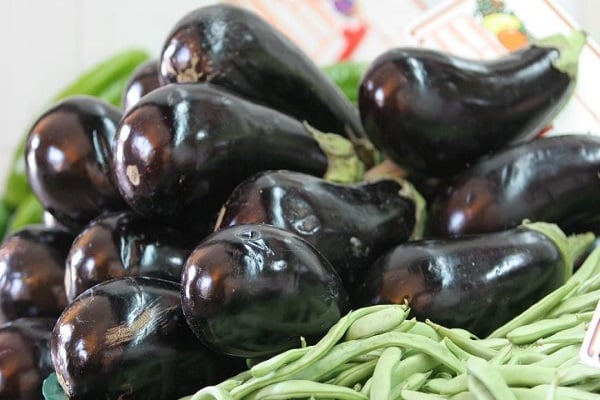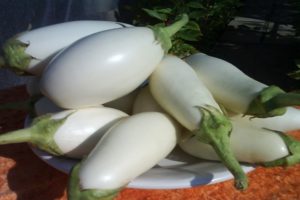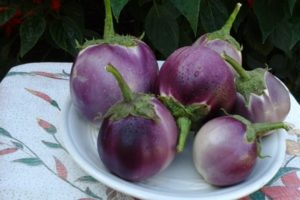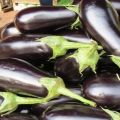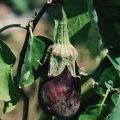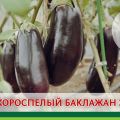What eggplant contains: chemical composition and nutritional value
Summer residents who grow crops on their plots know about the benefits of this vegetable. And those who are just going to plant them in the garden, but have heard little about the elements that make up the eggplant, are lost in doubts. A detailed description will help you decide whether to grow.
The nutritional value
Those who are interested in this question will be interested to know that 100 g of eggplant contains:
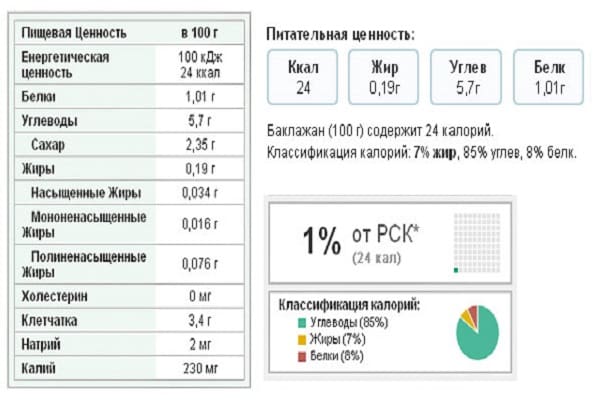
- 24 kcal;
- 91 g of water;
- 4.2 g of carbohydrates;
- 2.5 g dietary fiber;
- 1.2 g protein;
- 0.1 g fat;
- 0.5 g of ash;
- 0.9 g starch;
- 0.2 g of organic acids;
- 0.2 g mono-disaccharides.
The presence of a small amount of fat makes the product indispensable for dietary nutrition. And the carbohydrate content puts it on a par with meat and fish. That is, it turns out that by eating eggplants, a person replenishes the supply of proteins, fats and carbohydrates, but does not get fat. Since these substances are of plant origin.
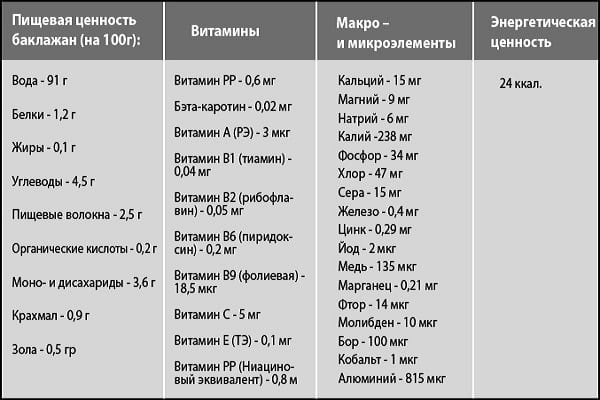
The chemical composition of eggplant
The fruit of culture is no less rich in this respect. Many people know about its beneficial properties. But not everyone likes this specific vegetable. Its chemical composition includes a set of microelements, vitamins, macronutrients and other substances.
100 g of eggplant contains the following vitamin composition:
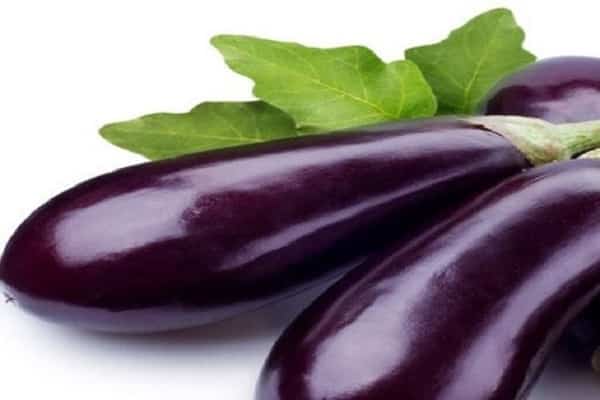
- 18.5 mcg folate, or vitamin B9;
- 3 mcg thiamine, vitamin B1;
- 5 mg vitamin C;
- 0.1 mg vitamin E;
- 0.2 mg pyridoxine, vitamin B6;
- 0.8 mg niacin equivalent or vitamin PP;
- 0.02 mg beta-carotene;
- 0.005 mg riboflavin, vitamin B2.
In addition to these substances, the vegetable contains micro and macro elements:
- 135 mcg copper;
- 14 μg of aluminum, fluorine, cobalt, boron and molybdenum;
- 0.2 μg iodine;
- 0.21 mcg manganese;
- 0.29 mg zinc;
- 0.4 mg iron;
- 238 mg potassium;
- 47 mg chlorine;
- 34 mg phosphorus;
- 15 mg calcium;
- 15 mg sulfur;
- 6 mg sodium.
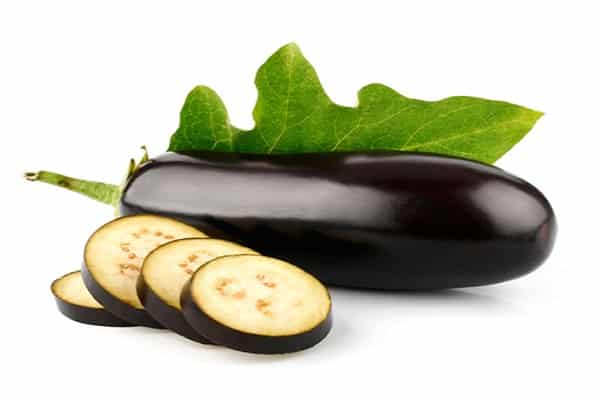
The parts of the fruit contain a different amount of nutrients, if consumed all together, a person will receive a full range of vitamins.
Eggplant skins contain:
- copper;
- zinc;
- sulfur;
- serine;
- molybdenum;
- lysine;
- sucrose;
- thiamine;
- riboflavin;
- cysteine;
- niacin;
- alimentary fiber;
- aspartic acid and other substances.
There is no need to eat the peel separately; together with the pulp and seeds, it will give even more benefits.
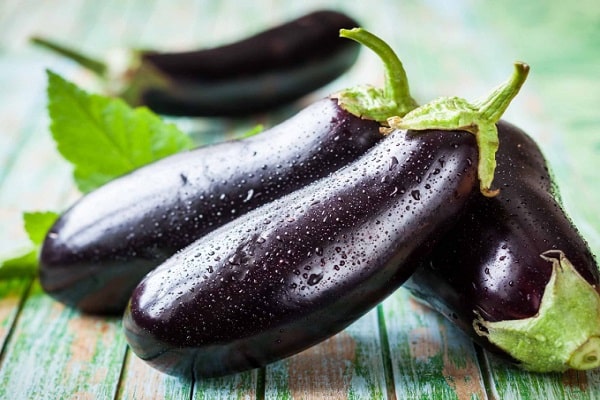
Useful properties of eggplant
In the East, the fruits of this culture were considered "vegetables of longevity." Now scientists have proven the positive effect of eating eggplant.
What properties does the product have:
- improving cardiovascular activity;
- normalization of salt balance;
- beneficial effect on the functioning of the liver, kidneys, gastrointestinal tract;
- relief of constipation;
- nasunin prevents damage to membrane cells, normalizes the level of iron in the blood;
- prevention of the development of cancer;
- lowering blood cholesterol;
- removal of excess fluid from the body;
- normalization of pressure;
- reduction of shortness of breath;
- improving metabolism;
- helping those who quit smoking.
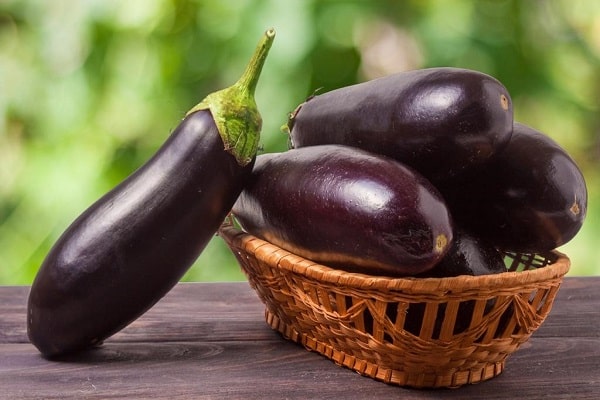
Indicated for use with:
- atherosclerosis;
- obesity;
- gout;
- metabolic disorders and other diseases.
It is difficult to overestimate the benefits of eating eggplant. They are not prohibited for use in diabetes mellitus. The beneficial effect for the human body is invaluable. But do not forget that not everyone can use it.
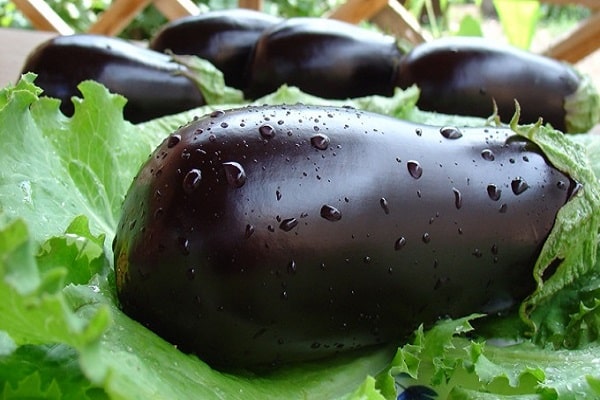
What is important to know about cooking eggplant
There are many ways to prepare this vegetable. They use the culture in the following variations:
- steamed;
- fried;
- stew;
- canned;
- make fresh juice.
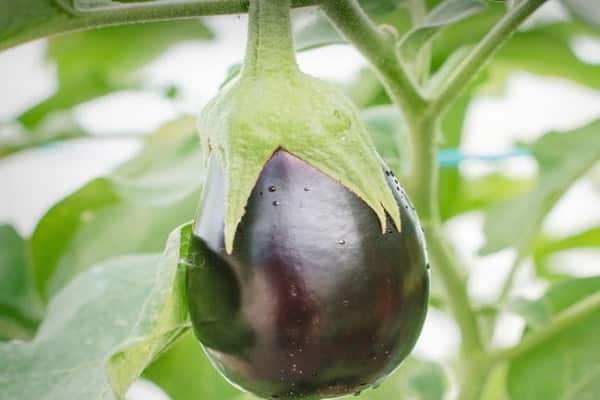
You should use the juice from this vegetable with caution. He is able to harm the body, in particular the gastrointestinal tract. Therefore, its use is possible strictly under the supervision of a physician.
The peculiarity of the culture is that eggplants are very similar in taste to mushrooms. Housewives often cook them together.
There are varieties of crops that have bitter fruits. This is an integral part of the flavor profile. There are ways to get rid of this feature. For this it is enough:
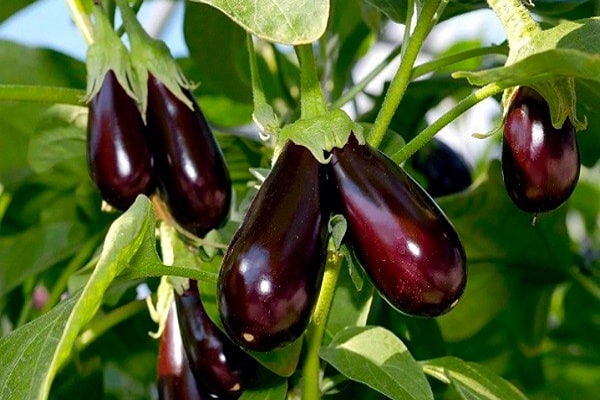
- Remove the skin in advance, before starting the preparation of the dish or preparation.
- Cooked fruits are briefly dipped in cold water. Then squeeze out the liquid well.
- If you add carrots or potatoes to the dish during cooking, they will take away the bitterness from the eggplant.
- Cut fresh vegetables, sprinkle with salt and let stand for a while, then squeeze out the liquid that appears and rinse the workpiece with water.
- Soak in water for 2-4 hours.
- Cut blanch for 1-2 minutes.
For any cooking method, slightly unripe fruits are chosen, they have less bitterness, they are tastier and are not dangerous to health.
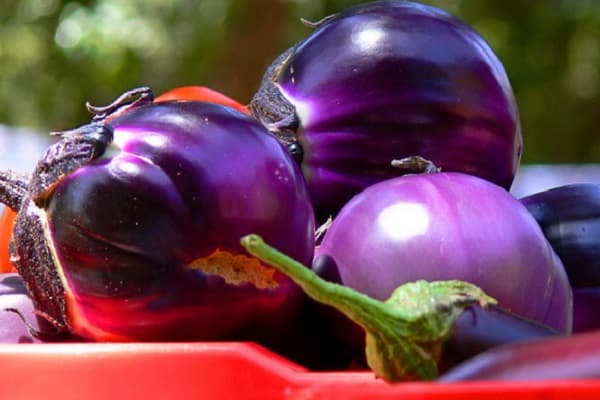
For freezing, the vegetable is arbitrarily cut, with the help of a paper napkin, collect the excess liquid and put it in the freezer. In this form, the fruits can be stored for 5-6 months without loss of taste and useful properties.
Do not thaw before use. This will help preserve nutrients.

Dry the eggplants in a well-ventilated area, but not in direct sunlight. There is another option, how to dry a vegetable, for this it is placed in an oven or a special fruit dryer.
Peeling is recommended for dietary use. When frying, the vegetable strongly absorbs fat. Therefore, steaming or baking will be more useful.
The fruits of the culture are combined with almost all vegetables, as well as mushrooms, meat and nuts.

Contraindications for eggplant
Eating this product in food is beneficial and harmful. The peculiarity of the fruits of culture is that corned beef accumulates in large quantities in them, which can poison a person. Its content is especially high in overripe fruits, which absolutely cannot be used for food.
People with individual intolerance to the product may suffer from an allergic reaction.
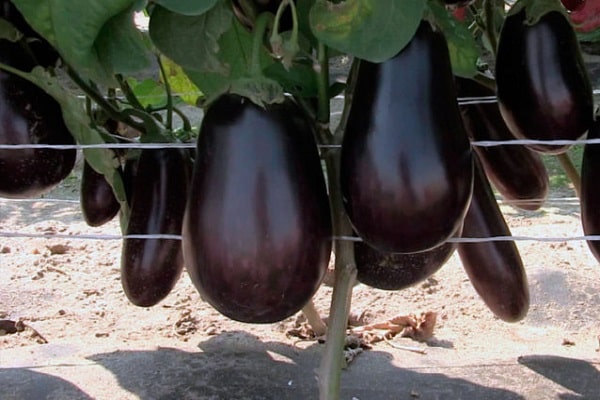
Eggplant is contraindicated:
- Children under 3 years old.
- People suffering from diseases of the stomach and intestines.
- People suffering from iron deficiency. The vegetable actively removes iron from the body.
- People who have kidney disease. Since crystallization of oxalic acid occurs in the kidneys.
Care should be taken to consume this vegetable if at least one of these points is noticed.
The composition of eggplant is diverse, and its benefits are undeniable. By eating the fruits every day, people get rid of many ailments.
